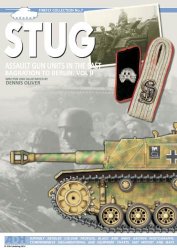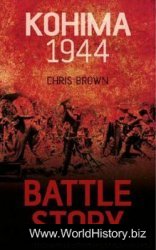As solitary as researching and writing are, looking back I had a lot of help from many wonderful, thoughtful people in doing this project. A short list of those who were instrumental in providing this help would include:
Ginger T. Osborne, my wife, for patiently listening to me read countless passages from the manuscript to get her recommendations regarding clarity, logic, and brevity, and for supporting this project in numerous other ways.
Janet Fireman, editor of the California History journal for more than a decade and adjunct professor of history at USC/Scholar in Residence at Loyola Marymount University, for offering indispensable guidance in making my case for the dominant role played by California’s Pacific connections in shaping the state’s history.
Peter Coveney, executive editor at Wiley-Blackwell Publishing, for his wise counsel on helping me shape the length of the manuscript and number of chapters, and especially for recognizing the promise of this project when I was still conceptualizing it.
Deirdre Ilkson, development editor (par excellence) at Wiley-Blackwell Publishing, for her attention to the manuscript’s organization of content, its clarity of expression, and the numerous sensible suggestions she made regarding chapter revisions.
Isobel Bainton, project editor at Wiley-Blackwell Publishing, for patiently and expertly guiding me through the lengthy process of obtaining permissions for the use of visuals.
Janet Moth, project manager at Wiley-Blackwell, whose obsession with stylistic detail exceeds even my own, and who has ferreted out a number of my errors.
David Igler, associate professor of history at UC Irvine, for incisive comments and constructive suggestions on many chapters of this textbook.
Ted Miles, reference librarian, J. Porter Shaw Library, San Francisco Maritime Historical National Historic Park, for running numerous photocopies of journal articles and his valuable consultation regarding the library’s rich collections.
Tom MonPere, dear friend and aficionado of California history, for accompanying me on a history tour of Benicia and Martinez, as well as escorting me on a road trip through the Delta’s levees and old Chinatowns, reading many chapters and making helpful suggestions, and whetting my appetite for Wallace Stegner’s writings.
Nell Yang, Santa Ana College librarian, for furnishing me with copies of scholarly articles needed for my research on Chinese Americans and transpacific trade in California’s past, as well as cheering me on at every stage of this project.
Thomas Lucas, professor of art and architecture at the University of San Francisco, for a private tour of his brilliant “Galleons and Globalization” exhibit and tutoring me on the artworks carried from China to California’s missions.
Christina Gold, professor of history at El Camino College, for helping me see some of the teaching benefits of my Pacific-centric/international approach that I did not fully appreciate at the outset of this project.
William Courter, professor of geography at Santa Ana College, for the clearest explanation I’ve received from anyone on plate tectonics’ role in forming California and its landscape.
Patricia Martz, professor of anthropology emerita, California State University at Los Angeles, for fact-checking my coverage on California Indians during the pre-contact period.
Phillip Sanfield, director of media relations for the Port of Los Angeles, who graciously provided me with photocopies of annual reports on exports and imports during the decades of the 1950s, 1960s, and 1970s.
Todd T. Osborne, for helping me with downloading computer graphics and answering my numerous computer-related questions during many late-night telephone calls.
Brooks T. Osborne, for his reading of Chapter 14 with an attorney’s eye for argument and organization of material.
Glenna Matthews, independent historian, for reading the entire manuscript and informing me about various aspects of Silicon Valley history pertinent to this study.
Sarah E. Monpere, for help with photographs.
Kristine Ferry, Acting Head of Access Services, UC Irvine Library, for seeing to it that a non-UC Irvine scholar could have full use the Langson Library.




 World History
World History









